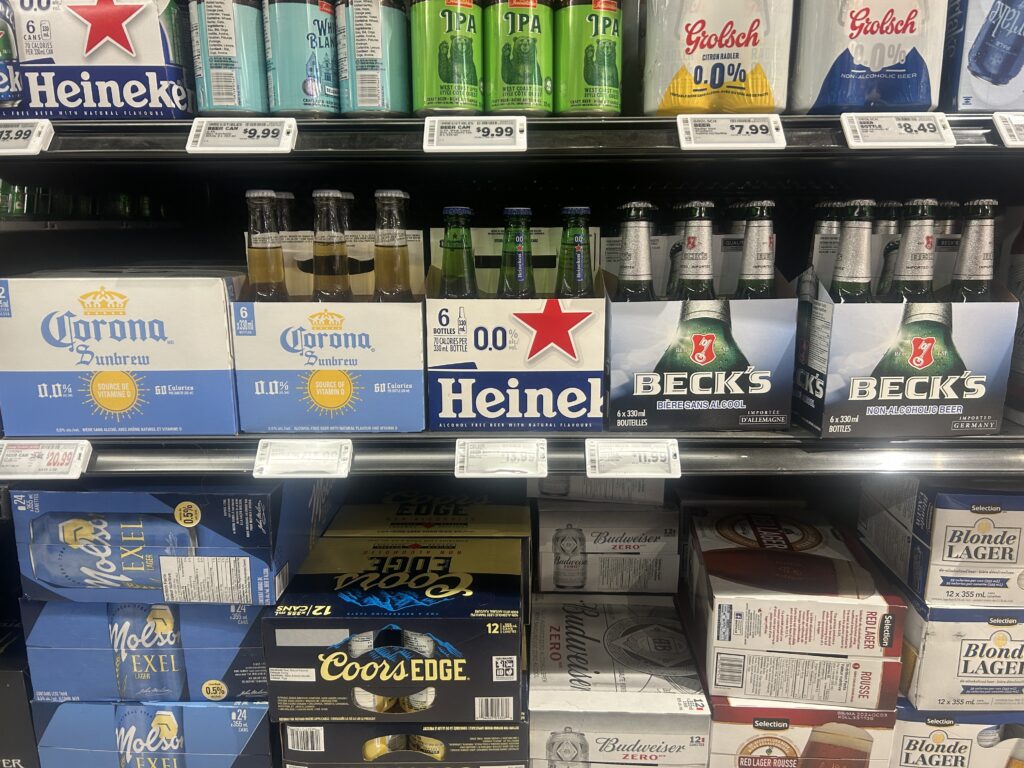
Could you go without a drop of alcohol for one month? That is the challenge some students at Toronto Metropolitan University (TMU) are taking on by participating in Dry Feb, a fundraiser for cancer research led by the Canadian Cancer Society.
The fundraiser, launched in 2016, aims to raise money for research and to educate Canadians on the link between alcohol and cancer.
“Drinking alcohol puts you at risk of at least nine types of cancer,” said Barbara Acampado-Kay, senior manager of integrated campaigns and online partnerships at the Canadian Cancer Society. “Not enough Canadians know the risks.”
Despite these risks, a 2020 survey done by the government of Canada, found that 74 per cent of students had consumed alcohol in the past 30 days.
Nicholas Campeau, a third-year business management student, has no issues with having a pint. He said that having a drink after completing stressful school tasks can serve as a way to wind down. But this mindset changes in February.
“Both of my parents have battled cancer in their lives so I see this as an important opportunity to build awareness for research,” said Campeau. “The best way to succeed is by surrounding yourself with friends who have your best interests at heart and understand the choice you are making.”
The effects of peer pressure on university campuses are well documented. In a report by the Canadian Centre on Substance Abuse that looked at drinking at universities and colleges, 53 per cent of students said they experienced at least one situation where they felt pressured to drink.
“If you’re taking on this challenge it’s important to have the support of family and friends who should be encouraging you to keep going,” said Acampado-Kay.
Lachlan Douglas, a second-year social work student, also said the people you surround yourself with are key in staying dry. The combination of this and keeping busy through different hobbies are how he plans to get through February.
“Start doing your favorite sport more often and spend the time you would be drinking studying,” said Douglas. “It’s important to take this month and get into a good routine because alcohol is the starting point to plenty of bad habits and without drinking you’ll find yourself with more time.”
The rise of non-alcoholic beverages may make the month easier for some participants. According to Statista, the non-alcoholic beer market in Canada is expected to grow by 5.65 per cent in 2024 with projected revenues of more than $200 million.
Roosie Yoon, an assistant professor at the Daphne Cockwell School of Nursing, said there are plenty of ways to still have fun with non-alcoholic beverages. She said having these drinks can still offer many of the social aspects you get from drinking alcohol without the risk of health impacts.
“Going dry in February also allows you to increase your social connectedness that goes beyond the setting of a bar. Join a club or an association, there are plenty of opportunities at TMU,” Yoon said.
Recent TMU graduate Austin Fischbacher stopped drinking in October 2022 and has never looked back. He encourages students to attempt DryFeb.
“Going out with friends and not having to suffer the consequences the next morning makes me more efficient in what I do,” said Fischbacher. “It can be difficult at first but just take it day-to-day and avoid being hard on yourself throughout the process.”
Nikolas Viveiros is a fourth-year journalism student at TMU.

